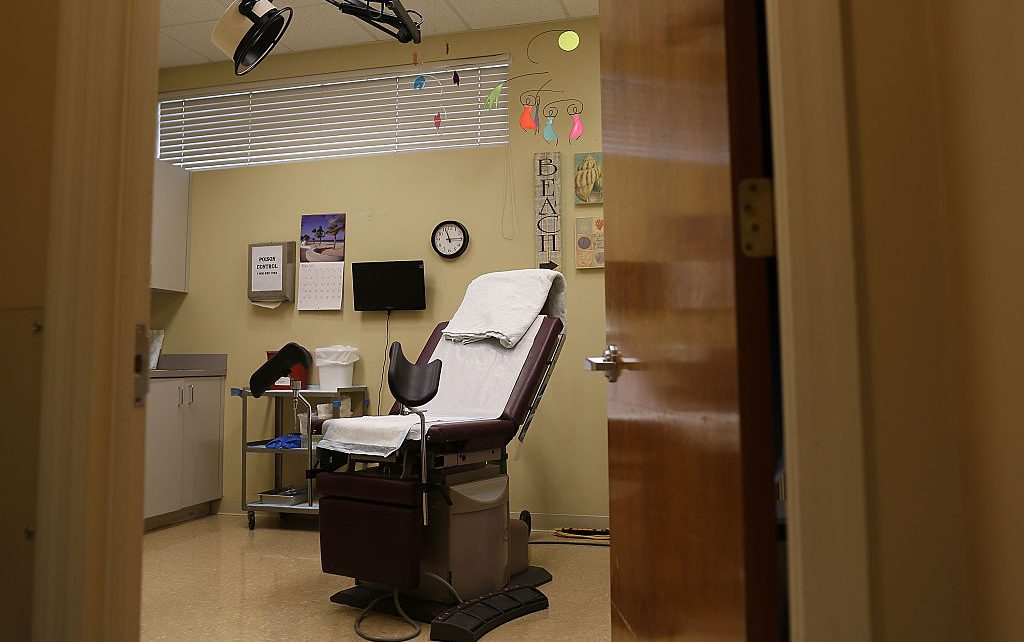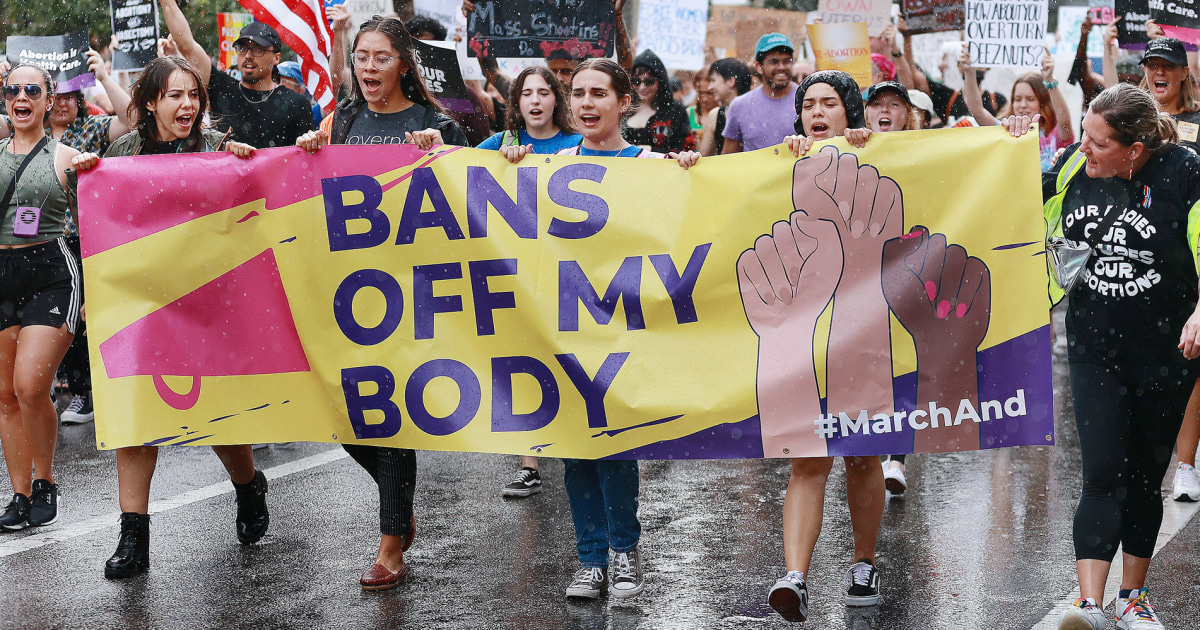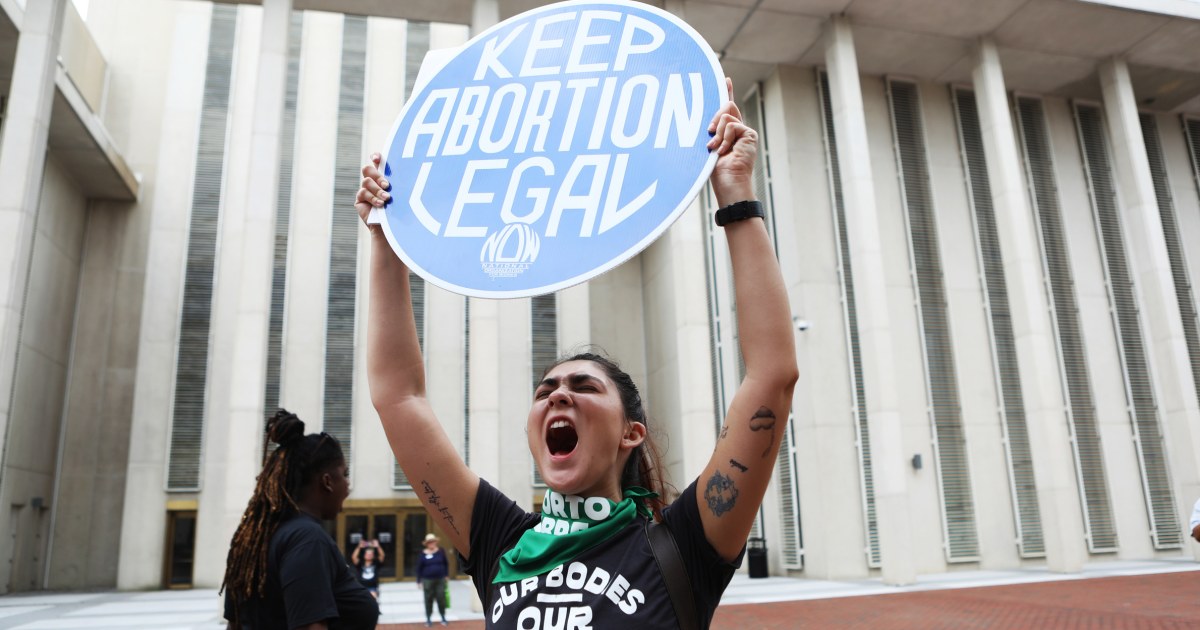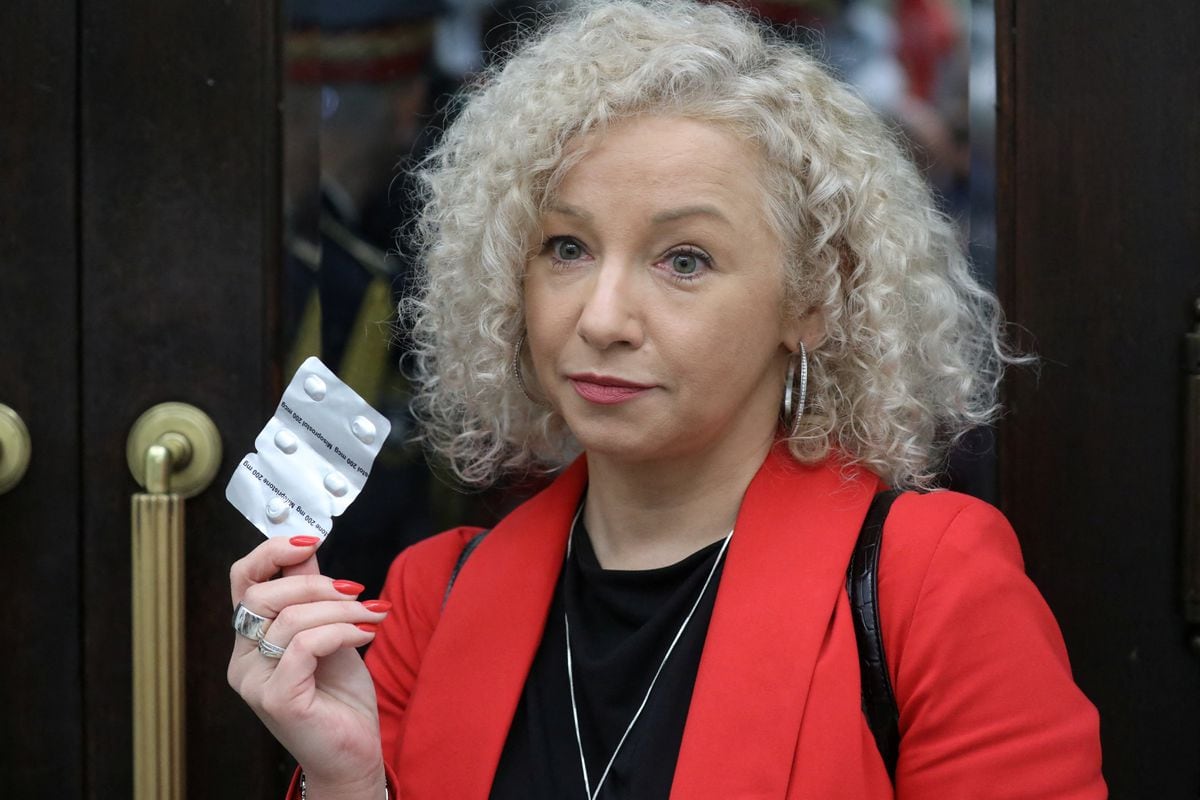How many women in the US would lose the right to an abortion?
1:03
(CNN Spanish) --
If the Supreme Court of the United States decides to end the jurisprudence, the historic ruling of Roe vs.
Wade, about 23 states could ban abortion, including Florida, according to an analysis by the Guttmacher Institute, an organization that supports abortion rights.
The end of Roe vs.
Wade could leave many women who need abortion services hundreds or thousands of miles away from access to the procedure, something unaffordable for many.
These are the US states where the right to abortion would be under threat if Roe vs.
Wade
In the specific case of Florida, in April Governor Ron DeSantis enacted a law that prohibits most abortions after 15 weeks of pregnancy, with some exceptions.
The approval of this law adds to several restrictions that are or will be in force in the state, such as the 24-hour waiting period, parental authorization in the case of an abortion request by a minor, among others.
30% of reported legal abortions in Florida were obtained by Hispanics, according to the most recent figures from a study by the US Centers for Disease Control and Prevention (CDC).
What would happen if the right to abortion in the US is annulled?
2:27
Here's what the current laws mean for people seeking abortions in Florida:
advertising
24 hour period
Florida's new law requires, as it does in Texas and other states with Republican administrations, that a person make two appointments at least 24 hours apart to obtain an abortion.
The first visit includes lab work, ultrasound, optional education and information, as well as a meeting with a doctor to discuss the procedure.
The procedure will be performed on the second visit.
According to the Guttmacher Institute, state-led counseling includes information "to discourage the patient from having an abortion."
The only exceptions to this rule are for victims of rape, incest, domestic violence, and human trafficking for which a police report, medical record, or court order is required, says Planned Parenthood, a nonprofit organization that provides child care. sexual and reproductive health, as well as family planning and gynecological care.
Parental authorization
In the case of those under 18 years of age, it requires that one of the parents be informed of the decision to have an abortion 48 hours before the procedure and that one of them must give their consent.
However, a judge can waive this requirement if she is a victim of sexual abuse, if it is a medical emergency, or if she is able to get the judge's permission.
Restricted financing, but not inaccessible
According to the National Health Law Program, federal Medicaid funding for abortion in all US states "is severely restricted, but not completely inaccessible."
These are the US states where the right to abortion would be under threat if Roe vs.
Wade
In the case of Florida, public funding is available but only in cases of danger to life, rape or incest, as established in the Hyde Amendment.
In the case of Florida, public funding is available but only in cases of danger to life, rape or incest, as established in the Hyde Amendment.
The Centers for Medicare and Medicaid Services (CMS) indicate that abortions that fall within the Hyde exceptions "should be considered within the scope of services that are medically necessary" and must be covered. by states.
The state of Florida requires a provider to fill out a specific form to process Medicaid reimbursement for abortion, without a police report being necessary.
Compulsory ultrasound
As part of the same scheme that requires two prior visits, Florida law requires a patient to have an ultrasound at least 24 hours before obtaining an abortion and requires her to listen to live ultrasound images as well as listen to provider's explanations of such images.
However, the woman has the right to refuse to see and hear the explanation of the live ultrasound, but she must complete a form acknowledging that she was offered the opportunity but declined.
The 15-week limit
In Florida, abortion is prohibited after 15 weeks of pregnancy — a total of three months and three weeks — with no exemptions for rape, incest or human trafficking.
The bill, which takes effect July 1, allows exemptions in cases where a pregnancy is "serious risk" to the mother or a fatal fetal abnormality is detected if two doctors confirm the diagnosis in writing.
Previously, Florida allowed abortion until the second trimester of pregnancy, which made it one of the states in the southeast of the country where it was easier to exercise the right to abortion.
AbortionCivil RightsFlorida





/cloudfront-eu-central-1.images.arcpublishing.com/prisa/OCS7V4Q6YKB6UMI76BXPPNGQJE.jpg)



/cloudfront-eu-central-1.images.arcpublishing.com/prisa/JKNMV5QC6BOTHMYCTVK4JK4J7I.jpg)